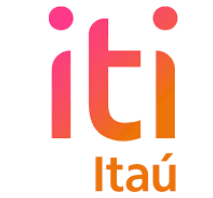Fintech competition is heating up in Chile on the heels of new financial regulations and efforts from banks and fintechs to move digital banking forward. Itaú, Latin America’s largest bank, is about to launch into the neobank space, while a legislative proposal under discussion in Congress is poised to accelerate the adoption of open finance practices within the country.
The Brazilian banking heavyweight, with significant operations beyond its homeland in Chile and Colombia, has recently unveiled plans for “Itu,” a digital banking venture initially offering a virtual account and a Mastercard debit card. Notably, Itaú had previously registered “Iti,” its neobank in Brazil, for operation in Chile.
“Itu” is set to facilitate payments both in-person and online, as revealed by Gabriel Moura, General Manager at Itaú Chile. However, specific details about the initiative remain under wraps, and it is unclear if Itu will be a spinoff or operate within the Chilean bank operation.
This move echoes the trend of traditional banks venturing into the digital realm in response to mounting competition from digital-only financial providers.
Banks and fintechs vie for digital customers
Itaú launched Iti back in 2019 in Brazil, as a means to reach a new segment amid growing competition from digital banks. The neobank reported it had reached some 10 million customers by the end of 2021, and some 18 million as of last year.
In recent years, neobanks like Nubank have gained widespread popularity in Latin America, attracting millions of customers with low acquisition costs. With increasing digital competition, incumbent banks have revamped their products, often struggling with legacy systems that hinder digitization. Because of these difficulties, some banks have ventured into entirely new initiatives such as Iti, in the case of Itau, or Next in the case of Bradesco, its Brazilian rival.
“The banking sector has caught up in recent years,” says Hugo Céspedes, a startup consultant and fintech influencer in Chile, in a conversation with Fintech Nexus. Most banks, he said, have adjusted their products so as to make them more competitive in the face of fintech competition. And now they are taking things a step further. “Today, they are opening their wallets directly to invest in developing a fintech or to acquire one,” he adds.
One such example is Iti, the online lending arm of a traditional bank, which is now looking to capitalize on emerging regional trends such as Open Finance and instant payments. In Brazil, the digital wallet offers a virtual account and a credit card.
New regulation in Chile

The fintech landscape in Chile is experiencing a surge in activity, driven by the implementation of a fintech law in 2023 that introduced concepts like Open Finance. Despite challenges in funding, the local ecosystem has seen significant growth in recent years. Enthusiasts are optimistic that a robust regulatory framework will facilitate further expansion.
Now, a new bill is progressing in the Chilean Congress, aiming to establish a public and free Consolidated Debt Registry. According to the country’s Minister of Finance, this initiative promotes enhanced information regarding individuals’ payment behavior, enabling responsible borrowers to access better interest rates. It was approved in the Senate in late September.
“This will help mitigate over-indebtedness and advance in the realm of credit information,” the local fintech association noted in a post.
The fintech law in Chile
“With the fintech law, Chile achieved a very significant milestone at the regional level,” says Delfina Peña Bunge, who leads the fintech association in the country.
The local fintech association estimates Chile’s fintech law will result in $400 million in yearly investments two years from now. Also, it will lead to the number of companies more than doubling to 400, an estimate in line with the strong growth that the sector has posted in the last five years.
Chile stands out in the fintech landscape compared to other countries, as it begins with a different starting point. According to data from the financial regulator, Chile boasts the highest level of banking penetration, with more than 70% of its population actively participating in banking activities.
With significant progress on this front, some now believe fintechs have an opportunity to cater to SMEs. “While financial inclusion has been the focus of fintech over the past decade, there is now an opportunity to serve businesses, both large and small,” says Céspedes. “From digital payments to suppliers with business debit cards, corporate prepaid cards, and international purchases.”


